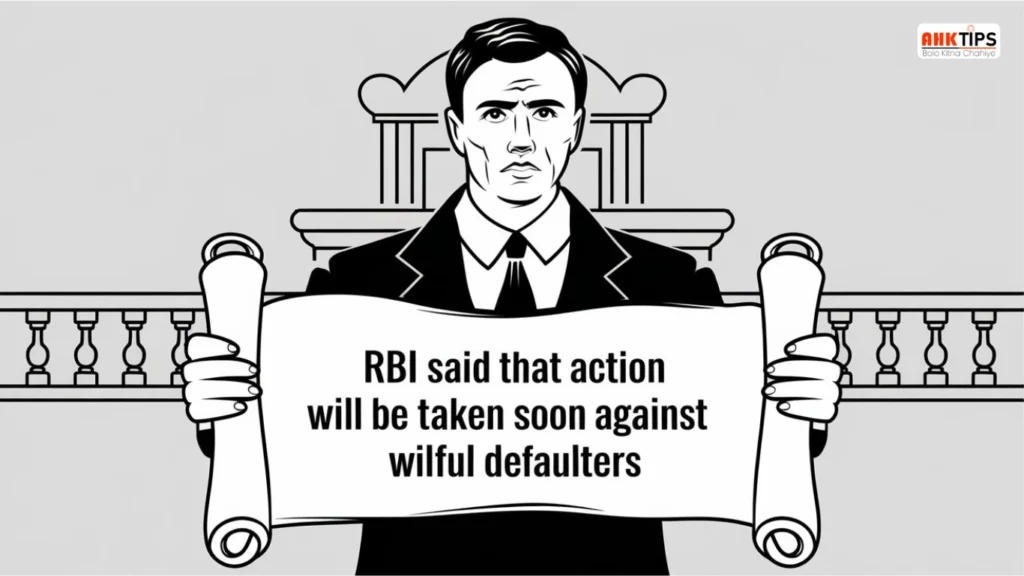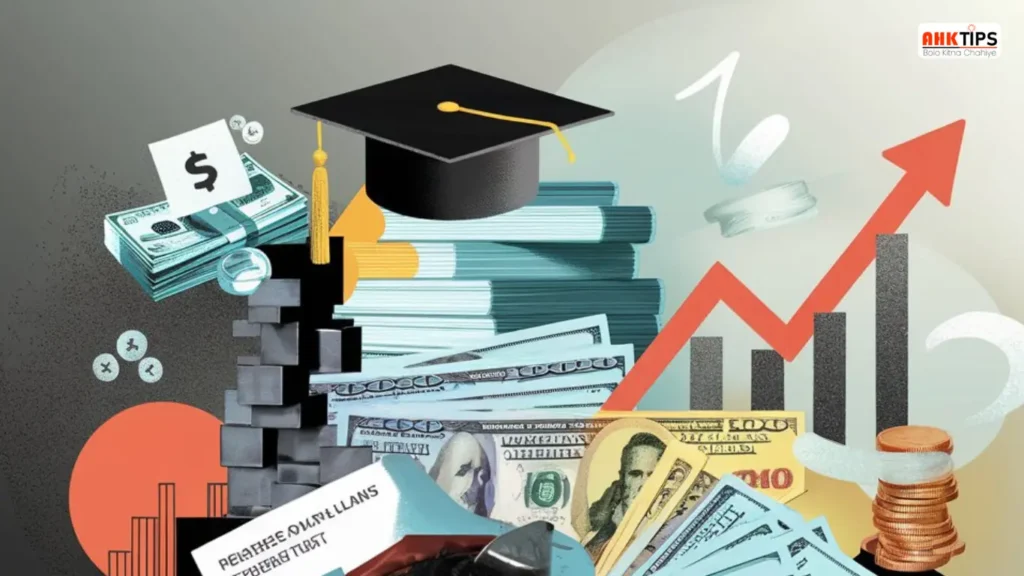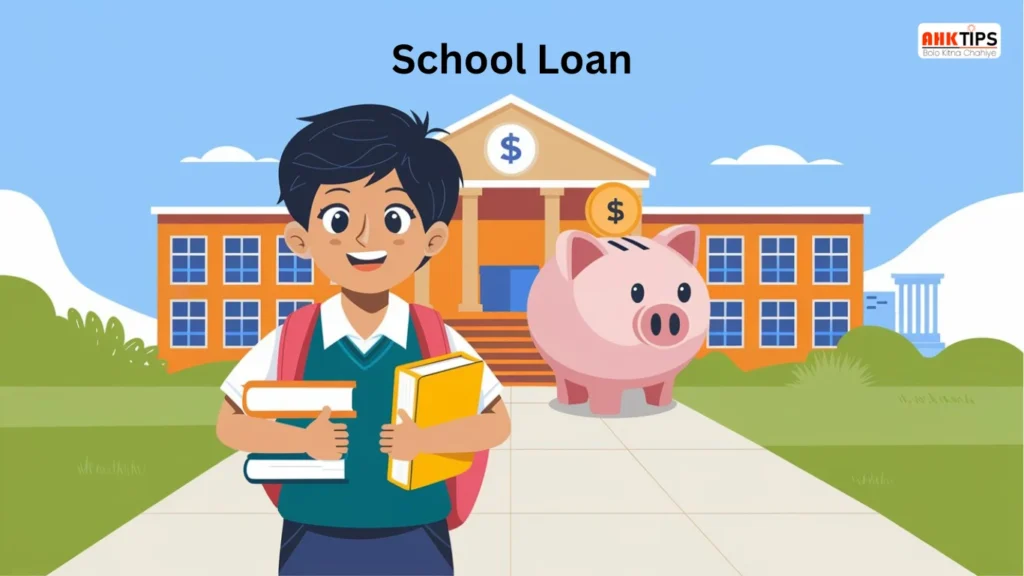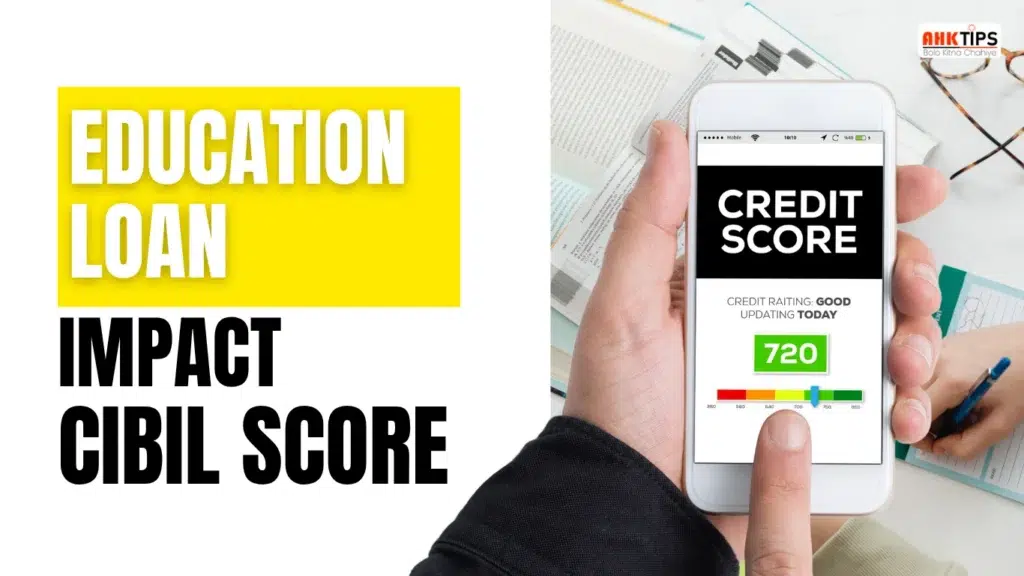Summary
Education loan settlement is an option in which the borrower pays a smaller amount to close the loan when full repayment is impossible. Financial stress usually occurs during financial hardship, such as unemployment, medical issues or a reduction in household income. Even if a settlement provides rapid debt and legal action relief, it has severe negative consequences, including destroying your credit score, limiting future loan approvals, and erasing your financial reputation. One of the options that could help without sacrificing your credit record is restructuring debt. Settlement should be the last resort when all else seems feasible. Knowing the differences between settlement and restructuring helps students to make smart financial decisions that maintain their long-term stability and future possibilities.
Introduction
Paying back an education loan can be difficult if life takes an unexpected turn. Whether it’s unemployment, medical emergencies, or reduced family income, some students find themselves unable to meet their loan commitments. Under such circumstances, loan settlement might be taken into consideration. Before choosing this road, though, you need to be aware of what it means, when it applies, and how it will influence your future. This article explains how your credit score and long-term financial status are affected, how education loans are settled, and how they differ from total payback. It also shows circumstances when you might want to settle and the benefits and drawbacks involved. Above importantly, it allows you to look at better choices like restructuring before deciding to pay.
What is Education Loan Settlement?
If you are struggling to pay back your student loans and feel constrained by growing interest or penalties, loan settlement can be a possibility. To fully understand your rights and risks, you must first understand what an education debt settlement is and how it differs from full payback.
Understanding Education Loan Settlement
An agreement between the borrower and the bank to close the loan account in exchange for a smaller amount than what was originally owed is known as a settlement for an education loan. This approach is frequently only considered when all other traditional repayment strategies have failed and the borrower is unable to repay the total loan debt.
The bank writes off a portion of the debt when the borrower settles the account with a lump sum or a lower amount. This is typically given when a loan becomes non-performing and it is difficult to reclaim through conventional means.
When is Settlement Considered
Banks would only consider settlement proposals in situations involving severe financial hardship and extended loan repayment arrears. Common causes include unemployment, medical issues, and income loss. Before making a settlement offer, the bank frequently sends out many recovery notices and reminders.
It is not a typical service, and approval is based on the bank’s internal policy. Additionally, evidence of difficulty and inability to repay in full must be provided. The settlement offer could be made as a last resort to recover at least some of the outstanding balance.
Difference Between Settlement and Full Repayment
You repay the debt according to its original terms, plus any interest that may have accrued, in a total payback. This keeps your credit history favourable and improves your credit score over time.
To settle the debt, you pay less than what you owe. Even though this may give you a brief reprieve, the account will be marked as “settled” in your credit report, which will negatively impact your credit profile. The lender sees it as a partial recovery rather than a successful closure.
Understanding what the student loan settlement entails can help you better comprehend the risks. It is not a waiver nor a benefit; rather, it is a change made when complete repayment is not possible.
How It Affects Your Financial Record
Your credit report will display “settled” instead of “closed” when a loan is settled and credit bureaus are informed. Your future eligibility for a credit card or loan may be impacted, and your credit score may drop significantly as a result.
The negative mark can remain on your credit report for several years. Some organisations may also be hesitant to offer student loans or financial aid in the future if your previous account was settled.
Exploring Alternatives Before Settlement
Before you reach the settlement stage, try to discuss options with your lender, such as a loan restructuring, a tenure extension, or temporary interest waivers. These options may ease the burden without harming your credit score.
Many banks offer grace periods or moratoriums if you’re truly facing problems. By taking prompt action, you can avoid a settlement and preserve your financial reputation.
Benefits of Education Loan Settlement
When financial difficulties make it difficult to repay an education loan, settlement may be an option. Settlement can provide much-needed relief, even though it has an impact on your credit score. When repayment is no longer possible, knowing the benefits of college loan settlement helps borrowers make an informed choice.
What is Education Loan Settlement
Settlement for education loans is an arrangement in which the borrower pays a part of the entire outstanding amount, and the lender forgives the remaining amount. It is usually provided when full repayment is not possible due to financial difficulty or long-term default.
While the borrower gets financial and legal relief, banks recover a part of the loan debt instead of considering it a total loss. Only when every traditional recovery effort fails is this option considered.
Relief from outstanding loan pressure
One of the main benefits of student loan settlement is immediate relief from heavy debt. Settlement provides a convenient way to eliminate loan accounts for borrowers who are unable to make payments due to medical problems, job loss or professional setbacks.
Without having to deal with mounting interest and penalties, the borrower can begin to recover due to a lighter financial burden.
Avoiding legal action
If a borrower defaults on payments on an education loan for a long time, banks may initiate legal action. Legal notices, collection notices and, in some situations, asset recovery activities can all fall into this category.
This outcome can be avoided through settlement. The legal recovery process ends when the bank marks the loan as settled after the agreed amount has been paid. This provides peace of mind to the borrower and saves them from additional legal worry.
Faster resolution of the loan account
Settlement results in a quicker closure of the account compared to traditional repayment arrangements, which can last several years. The loan account is settled once the terms are accepted and the funds are received.
This relieves the borrower of the pressure of outstanding debt, allowing them to move forward with financial planning, take on additional obligations, or apply for future school or employment opportunities.
Opportunity to rebuild financial stability
Borrowers who close loans through settlement get a fresh start and can focus on strengthening their financial position. The borrower can also begin to improve their credit score by responsibly managing other accounts, even after the settlement appears on the credit report.
Better money management is made possible by loan settlement. This frees up time to focus on earning, saving, and building a secure financial future while reducing mental and emotional stress.
Flexibility for genuine financial hardship
Settlements are often made when genuine financial hardship exists. If the borrower can provide evidence of hardship and demonstrates a willingness to make partial repayments, lenders are willing to consider such solutions.
One of the main benefits of college loan settlement is its flexibility, which allows borrowers to avoid genuine financial hardship while still meeting some of their commitments.
Drawbacks of Loan Settlement for Students
Education loans are frequently a student’s first financial commitment. When repayment becomes difficult, some people may choose to settle. Before deciding, students should be informed of the serious disadvantages of school loan settlement, even though it could seem like a simple fix.
Impact on Credit Score
One of the biggest drawbacks is the negative effect on your credit score. A debt settlement signifies that the full amount owing was not repaid by the terms of the original agreement. This has been updated in your credit report.
When lenders mark a debt as “settled,” they alert credit bureaus that you have not met your repayment obligations. This lowers your credit score and stays on your credit report for several years. A poor score hinders future eligibility for credit cards, other loans, and even rental agreements.
Reduced Chances of Future Loans
Banks and other financial institutions consider your credit history when deciding whether to offer you a new loan. A settlement entry raises questions about your ability to pay back the debt. This reduces the likelihood of receiving a personal loan, auto loan, or even a home loan.
Some lenders may only approve a loan at a higher interest rate because they believe you to be a high-risk borrower. This increases the cost of borrowing and limits your financial independence.
Long-Term Financial Reputation
Although a settlement may help you obtain a loan, it damages your long-term financial reputation. Even once the debt has been satisfied, the term “settled” does not simply disappear. It is used in background checks by employers, housing organisations, and even foreign visa officials.
This may affect employment applications, especially in the banking or finance sector, where financial reputation is essential. Additional testing may be required of students who wish to study abroad or seek employment in regulated areas.
No Legal Guarantee of Clean Closure
Even after settlement, there are instances where credit records do not appropriately represent the debt status. If the bank does not confirm or takes too long to notify the credit agency, the account can continue to show as active or past due.
As a result, future credit checks can have issues. You may need to follow up with the bank and credit bureau to correct the report, which takes effort and time. If you do not have the proper closing papers, you may still have credit issues after you have paid the agreed-upon amount.
Limited Financial Growth Early in Career
If young borrowers pay off their loans early in their financial lives, they may have fewer opportunities to build wealth. Credit can be used to create businesses, invest in higher education, or purchase real estate. If you have a poor credit history, those options become less available.
Rather than creating a positive financial record, a settlement creates a barrier. It restricts access to supplies and equipment that are often necessary at the beginning of a career.
When should you consider loan settlement?
Education loans are meant to support educational goals, hence, flexible repayment terms are a component of them. Some borrowers, however, have challenges in their lives that make it impossible to pay back the loan in whole. Under such circumstances, settlement could look like a last resort. Knowing when to pay back your student loan can help you make a fast and wise decision.
Understanding Education Loan Settlement
Loan settlement is not exactly what full payback is. Under this plan, you and the lender decide to waive the remaining balance and pay back a portion of the loan. Usually, this option becomes available when a debt has been non-performing or late for a protracted period.
It offers quick relief, but it also has negatives, including a negative credit history mark. This is why it is crucial to evaluate the situation completely before acting in such a manner.
Job loss or prolonged unemployment.
One of the most often occurring situations where settlement becomes required is prolonged unemployment. It could be difficult to make the monthly payments if you graduate from college and cannot obtain consistent employment, and your loan repayment deadline has expired.
Should several deferral or restructuring initiatives fail and your financial condition keeps worsening, settlement could be your last way to prevent legal action and account closure.
Medical emergency or disability
A borrower’s capacity to earn and pay back might be greatly affected by health emergencies. In some cases remedy could come from a settlement. Banks could be ready to pay off your loan if you can present official documents proving your physical or medical impairment.
Knowing when to pay off an education loan helps one to realise that unanticipated medical issues can impact finances long term and make regular payments challenging.
Sudden drop in family income
Should illness, job loss, or business failure cause a parent or guardian who co-signed your school loan to see a drop in income, the weight of loan payments will be totally on you. Sometimes, if neither you nor the co-borrower can make payments, a settlement request can be filed using financial records.
This can assist in fixing the problem with the bank and stop legal escalation, particularly in cases when all sides are truly financially strapped.
Legal threats or default notices
It could be time to consider settlement if the bank has begun sending recovery agents or legal letters, and your income still falls short of sustaining regular payments. At this stage, the bank might be more open to negotiations, especially if the debt has been outstanding for several months.
Usually, this is the optimum time to pay off your student loans without seriously compromising your financial situation or mental clarity. Get the settlement terms in writito to avoid more issues.
Loan Settlement vs Loan Restructuring
Many students find it difficult to pay back their loans, particularly in uncertain economic times or case of career setbacks. Two popular choices are usually debt restructuring and loan settlement when repayments are challenging. Choosing the best course of action depends on knowing the main variations between loan settlement and restructuring in terms of schooling.
What is Education Loan Settlement
Debt settlement is the process whereby a borrower unable to pay back the whole outstanding debt owing to financial difficulty does so. In this instance, the bank deems the loan closed and offers to accept a portion of the overall amount. One releases the remaining balance.
Usually utilised when the borrower has already defaulted and there is no reasonable approach to pay back the entire loan is this choice is used. Usually involving bargaining, it calls for evidence of financial strain. Once finished, the credit report notes “settled” as the account status, therefore affecting credit health.
What is Loan Restructuring
Restructuring a loan is a change in the terms that lets the borrower keep paying back under more reasonable circumstances. This could call for extending the loan term, reducing the E MI, or providing a brief payment moratorium.
Unlike a settlement, the borrower keeps paying the whole amount over an extended period. Those who have a consistent or expected income but are temporarily having financial problems might find it appropriate. Restructuring helps prevent default and guards the borrower’s credit profile.
Timing and Eligibility
Restructuring is provided before the loan turns into a non-performing asset. Early requests for restructuring can come from borrowers who expect problems with payback from job loss, delayed salaries, or health emergencies. Helping borrowers who act before failing is more welcome from banks.
Settlement comes only when all other repayment options have failed. Settlement becomes a possibility if the borrower has missed several EMIs and the bank has little chance of recovery. Under such circumstances, the bank seeks to recoup at least some of the unpaid debt.
Impact on Credit Profile
The impact on credit history is one of the main factors guiding the knowledge of loan settlement against restructuring. Restructuring prevents bad comments and maintains the account active. The credit score stays rather safe as long as the borrower applies the new terms.
Still, a settlement causes a decline in credit score. Future lenders view the “settled” status as indicating that the borrower paid less than the required amount, therefore lowering creditworthiness. This could influence credit card, automobile, or house loan eligibility.
Long-Term Financial Flexibility
Restructuring lets a borrower bounce back financially without sacrificing future choices. Maintaining good credit will help the borrower later on apply for financial products or qualify for fresh loans as required.
While it offers temporary assistance, settlement reduces future borrowing capacity. Where financial background checks are needed, they can potentially affect job prospects or visa applications. Long-term financial planning and present payback capacity will determine which of these two choices best fits you.
Conclusion
Even if it provides a way out from under a financial crisis, education loan settlement should only be considered as a last resort. It somewhat helps, but it affects your credit score and long-term financial goals. First concerns for borrowers should be on maintaining their credit score through either restructuring or repayment options. A big step, the settlement might affect the following loans, job opportunities, even visa applications or overseas study. If you have to settle, be sure all the criteria are exactly expressed and accurately noted. Understanding the risks and responsibilities related to settlement enables you to make the best decision during a financial crisis. With careful planning, fast interaction with the lender, and skilled advice seeking, your financial future can be maintained.
FAQ’s
Ans: Under financial difficulty, the borrower pays a portion of the loan, and the bank forgives the remaining amount owing.
Ans: Indeed, paying off a loan lowers your credit score and shows “settled” on your credit record for numerous years.
Ans: Only when you find yourself in major financial trouble—job loss, illness, long-term default—and there is no other way to pay back debt.
Ans: Sure. Unlike settlement, which damages your credit rating, restructuring changes your payment terms but preserves your credit profile.











